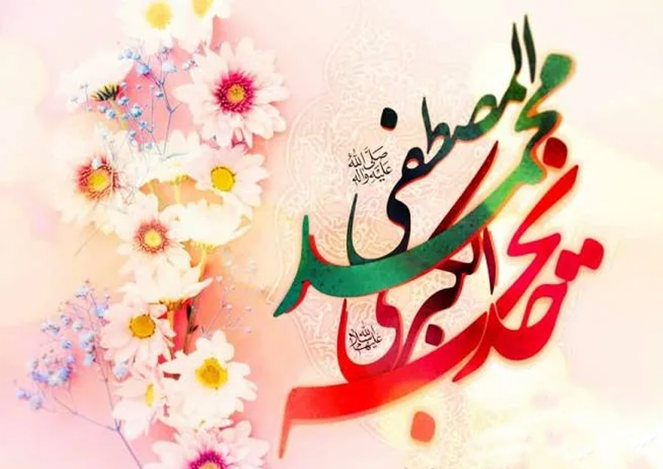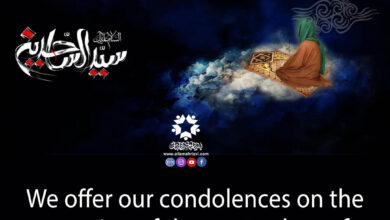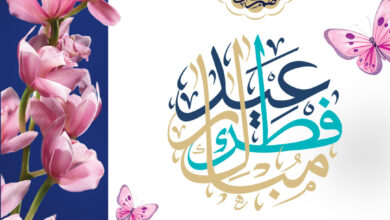
THE PROPHET MOHAMMAD (pbuh) And important events before declaring prophethood (Part 2)
Analysis by: Rais al-Muballigheen Allamah Sayyid Saeed Akhtar Rizvi
Contents
Sacrilegious War (Harb-ul-Fijar) and League of Virtuous (Hilful-Fudhul)
Muhammad (s.a.w.a.) marries Khadijah
Introduction
This article is taken from the writings of Rais al-Muballigheen Allamah Sayyid Saeed Akhtar Rizvi, specifically from the book “Life of Muhammad the Prophet”. Here, on the occasion of the birth anniversary of His Holiness (saww), some important topics are mentioned in this edition of the Akhtar Taban magazine, and other topics will be mentioned in the next editions. The contents of this book are very important, as Allamah Rizvi himself stated in the introduction of this book that: “The idea behind writing this book was to satisfy the needs of our new generation – the youths and the students who are unable to study the scholastic books written by the Muslim scholars and whose only source of information seems to be the biased writings of orientalists presented as “objective” and “authentic” studies.”
Sacrilegious War (Harb-ul-Fijar) and League of Virtuous (Hilful-Fudhul)
At a place known as ‘Ukaz, a great annual fair used to be held during the month of Dhul-Qa’dah during which war and bloodshed were forbidden. At the time of the fair, ‘Ukaz presented a scene of pleasure and abandonment with its dancing girls, gaming tables, drunken orgies, poetic contests and shows of prowess ending frequently in brawls and bloodshed. At one of the fairs, war broke out between the Quraish and the Banu Kinanah on one side and the Qais ‘Aylan on the other.
This war continued for a number of years with a considerable loss of life and varying fortunes. The lewd scenes, drunken affrays and the horrors of the war must have created a deep impression on Muhammad’s sensitive mind. When the Quraish were ultimately victorious, a league was formed, on the suggestion of Zubayr, an uncle of the Prophet, to prevent disturbances of peace, to help victims of oppression, and to protect travelers. Muhammad took a very active interest in the functioning of this League which came into being as a result of a settlement known as Hilf-ul-Fudhul between Banu Hashim, Banu Taym, Banu Asad, Banu Zuhrah and Banu Muttalib. The League continued to function for half a century following the inception of Islam.
Muhammad (s.a.w.a.) marries Khadijah
Now, Muhammad (s.a.w.a.) was old enough to go with the trade caravans. But Abu Talib’s financial position had become very weak because of the expenses of Rifadah and Siqayah, and it was no longer possible for him to equip Muhammad (s.a.w.a.) with the merchandise on his own. He, therefore, advised him to act as agent for a noble lady, Khadijah bint Khuwaylid, who was the wealthiest person in Quraish. It is written that in the trade caravans, her merchandise usually equaled the merchandise of the whole tribe put together.
Her genealogy joins with that of the Holy Prophet at Qusayi. She was Khadijah daughter of Khuwaylid ibn Asad ibn ‘Abdul-‘Uzza ibn Qusayi.
The reputation which Muhammad (s.a.w.a.) enjoyed for his honesty and integrity, led Khadijah to willingly entrust her goods to him for sale in Syria. He traded in such a way that the goods earned more profit than expected, and yet he was praised for his integrity, honesty and generosity.
Khadijah was very much impressed. Only two months after his return to Mecca, he was married to Khadijah. He was twenty-five years of age.
Reconstruction of the Ka’bah
In about 605 A.D. when the Holy Prophet was 35 years old, a flood swept Mecca and the building of the Ka’bah was badly damaged. The Quraish decided to rebuild it. When the walls reached a certain height, a dispute arose between various clans as to whom should the honor of placing the Black Stone (Hajar Aswad) in its place go. This dispute threatened to assume serious proportions but, at last, it was agreed upon that the first person to enter the precincts of the Ka’bah the next morning should arbitrate this issue.
It so happened, that first person was none other than Muhammad (s.a.w.a). The Quraish were pleased with the turn of the events because Muhammad was well recognized as the Truthful and Trust-worthy personality.
Muhammad (s.a.w.a.) put his own robe on the ground and put the Black Stone on it. He told the disputing clans to send one representative each to hold the corners of the robe and to raise it. When the robe was raised to the required level, he took hold of the Stone and put it in its place. This was a judgement, which settled the dispute to the satisfaction of all the parties.
At this time, he had entered into several business partnerships and always acted with great integrity in his dealings with his partners.
‘Abdullah, son of Abu Hamza, narrates that he had entered into a transaction with Muhammad (s.a.w.a). Its details had yet to be finalized when he had suddenly to leave promising that he would return soon. When, after three days, he went again to the spot, he found Muhammad (s.a.w.a.) waiting for him. Muhammad (s.a.w.a.) did not remonstrate with him. He just said that he had been there for all those three days waiting for him. Saib and Qays, who also had business transactions with him, testify to his exemplary dealings. People were so impressed by his uprightness and integrity, by the purity of his life, his unflinching fidelity, and his strict sense of duty that they called him “al-Amin,” the trusted one.
The Age of Ignorance
It was an age of ignorance (ayyamul-jahiliyyah) in which, generally speaking moral rectitude and the spiritual code had long been forgotten. Superstitious rites and dogmas had replaced the tenets of the Divine religion.
Only a few Quraishites (the ancestors of the Holy Prophet and a handful of others) remained followers of the religion of Ibrahim (A.S.), but they were an exception and were not able to exert any influence on others who were deeply submerged in pagan rites and beliefs. There were thoge who did not believe in God at all and thought that life was just a natural phenomenon. It is about these people that the Qur’an says: And they say: There is nothing but our life of this world; we live and die and nothing but time annihilates us. (Qur’an, 45:24)
Some believed in God but not in the Day of Resurrection or reward and punishment. It is against their belief that the Qur’an says: Say: He will give life to them Who brought them into existence at first. (Qur’an, 36:79)
While a few believed in God as well as in the reward and punishment in the life hereafter, they did not believe in Prophethood. It is about them that the Qur’an has said: And they say: What sort of prophet is he that eats and goes about in the market? (Qur’an, 25:7)
But, by and large, the Arabs were idolaters. They did not, however, recognize idols as God but only as intermediaries to God. As the Qur’an has pointed out, they said: We do not worship them save so that they may bring us nearer to Allah. (Qur’an, 39:3)
Some tribes worshipped the sun, others the moon. But the great majority, while indulging in idolatry, believed that there was a Supreme Being, the Creator of the heavens and the earth whom they called “Allah.” The Qur’an says: And if you ask them: Who has created the heavens and the earth and made the sun and the moon subservient? They will cry out ‘Allah’. Then whither are they going? (Qur’an, 29:61)
And when they sail in boats, they sincerely solicit the aid of Allah, but when He brings them safely to the land, behold! They ascribe others (with Him). (Qur’an, 29:65)
Christianity and Judaism, in the hands of their then followers in Arabia, had lost their appeal.
Sir William Muir writes:
Christianity had now and then feebly rippled the surface of Arabia and the sterner influences of Judaism had been occasionally visible in a deeper and more troubled current, but the tide of indigenous idolatry and superstition, setting out from every quarter with an unbroken and unebbing surge towards the Ka’bah, gave ample evidence that the faith and worship of the Ka’bah held the Arab mind in thralldom, vigorous and undisputed. After five centuries of Christian evangelization, it could only claim a sprinkling of disciples among the tribes, and as a converting agent was no longer operative.
(… The rest of the demand in the next Magazine)





